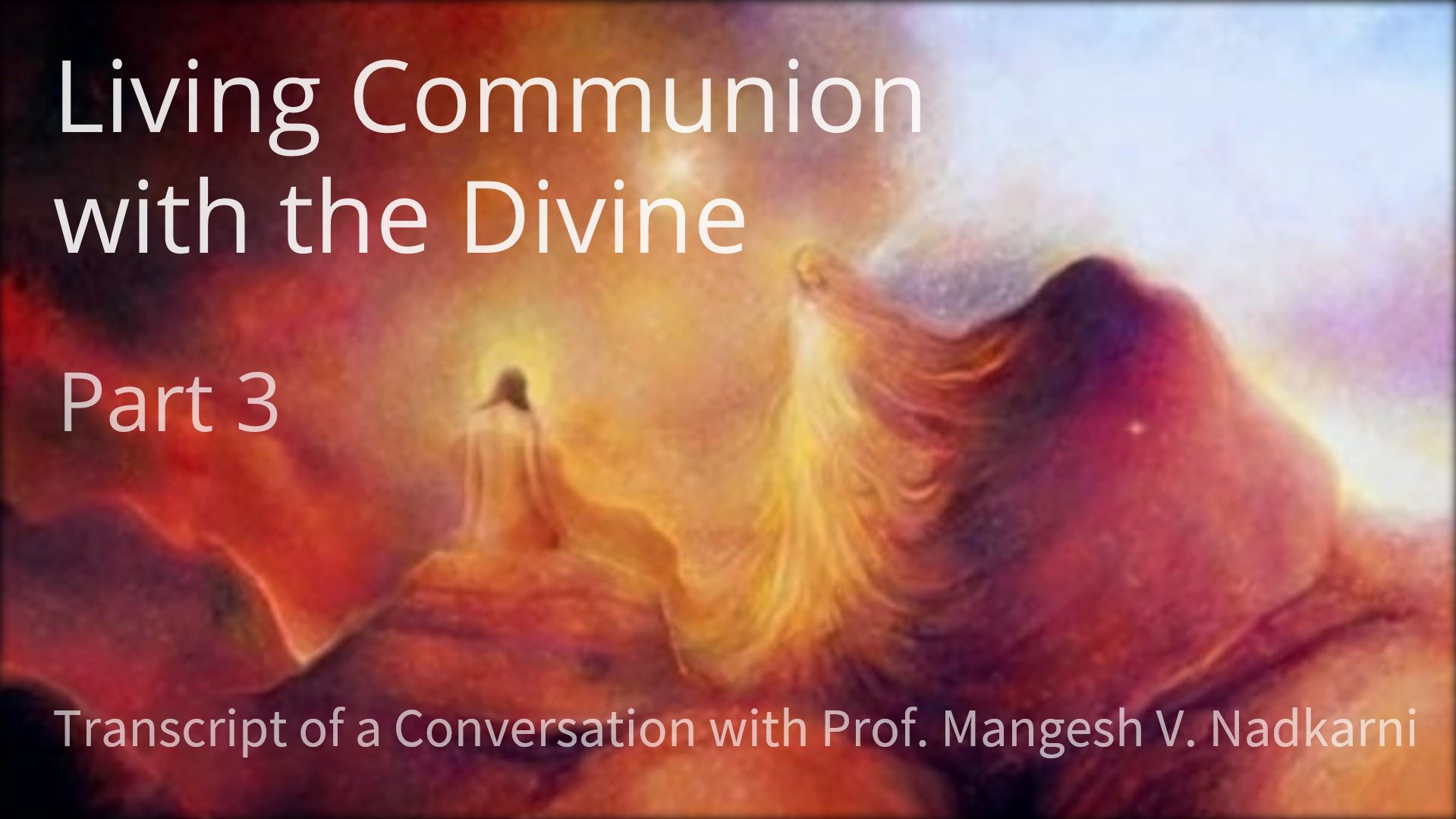
QUESTION 3: And the third question which arose in my mind is this: Immortality means death at one’s will. Do you think it is like the death of Bhishma?[*]
Bhishma’s was a unique case; he could die when it pleased him; death could not take him by surprise. But he got this as a boon from his father Shantanu. What Sri Aurobindo means by the word is somewhat different. For him immortality is a sign of our total mastery over every part of our being so that nothing is left at the mercy of the Inconscient.
Sri Aurobindo has reiterated what the Gita said: that death is a process of life, as are birth, childhood and old age. Death is a natural process in the sense that when the body cannot keep pace with the inner development, one needs to change one’s body and take up a new, more suitable body. But until now, death strikes us as the terrifying end of life. This is because it comes when it pleases, even when we feel we are not ready for it.
When death comes, it snaps the continuity of our consciousness and drags us like a beast of prey into the abyss of inconscience. This is why we need to be able to conquer death. Our primary aim is not to be able to live four hundred years or four thousand years in the same body. Our aim is to conquer death as a sign of the victory of our consciousness over every part of our being, including the body. The present pathetic condition of man is partly because his body is made of a substance which is still very close to the Inconscient. Now if that material can be made finer and finer, then the body will be able to respond to the needs of the inner growth. So what Sri Aurobindo is saying is: We need to conquer death not because death is in itself evil, but because in its present form it is totally unacceptable: it comes without consulting us, it sweeps over us and destroys everything; we are pushed back to the Inconscient, we don’t know when we are coming back or where we are coming back; we are lost in the great abyss of the Inconscient. That is why death has to be rejected. But once the body becomes capable of responding to the inner being, death in the present form will not be necessary. For this to happen, man has to acquire a new level of consciousness — what Sri Aurobindo called the Supramental Consciousness.
Now immortality looks very attractive to us because we all are trapped in death. But suppose that our mortality were taken away suddenly and we became immortal as we are, would we opt for it? As Savitri says, with our present imperfect consciousness, immortality would be a hell, not a heaven. So first of all we need to realise the immortality of our soul. Once we have realised the immortality within, then we need to transform our body so that it becomes flexible, transparent, strong, energetic and can adapt itself to the needs of the soul. This will be the victory of our consciousness over our physical being. And this is the immortality that Sri Aurobindo’s yoga is aiming at.
[*] Bhishma, one of the heroes of the Mahabharata, received from his father Shantanu the boon of choosing his own time of death.



